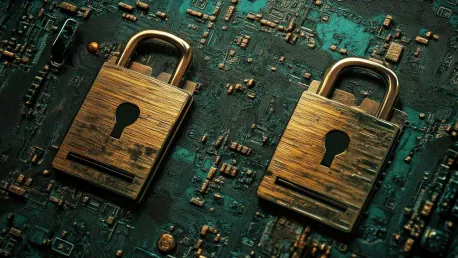Significant concerns regarding medical device cybersecurity have emerged following substantial staffing cuts at the U.S. Department of Health and Human Services (HHS), a situation that has drawn attention from industry experts and lawmakers alike. The layoffs, including 3,500 positions at the Food and Drug Administration (FDA), have led to fears about weakened cybersecurity oversight, a development that was highlighted during a House Energy and Commerce subcommittee hearing. Democrats on the panel expressed their strong opposition to the cuts, emphasizing the critical role of cybersecurity in safeguarding medical devices.
Impact on Cybersecurity Capabilities
The staffing reductions at both HHS and FDA are set to significantly impact the cybersecurity capabilities of these agencies, which are crucial in ensuring the safety and security of medical devices. Experts such as Kevin Fu, FDA’s acting medical device cybersecurity director, and Erik Decker, CISO of Intermountain Health, have stressed the irreplaceable nature of the lost talent. The FDA’s diminished capacity to drive cybersecurity initiatives effectively is a major concern for the healthcare sector that depends heavily on these devices.
Congressman Gary Palmer (R-AL) has highlighted the outdated nature of many essential healthcare devices, including patient monitors and infusion pumps, which lack modern cyber protective measures. The rapid obsolescence of software further exacerbates the issue, as software tends to age faster than hardware, making updates and patches increasingly difficult to implement. This leaves many devices vulnerable to cyber attacks, which can have devastating consequences on patient safety.
Additionally, the panel universally acknowledged the difficulty in detecting cyber risks within medical devices. Dr. Christian Dameff pointed out the absence of effective monitoring solutions, emphasizing the urgent need for innovative cybersecurity measures. Hospitals, which have only implemented approximately 55% of recommended cybersecurity practices for medical devices, remain particularly susceptible to cyber threats, highlighting a significant gap in the healthcare sector’s preparedness.
Financial and Staffing Challenges
The impending release of a white paper from the Health Sector Coordinating Council (HSCC) underscores the financial and staffing challenges in healthcare cybersecurity. The HSCC’s report will call for substantial funding and adequate staffing to address the risks posed by these vulnerabilities effectively. The document aims to outline strategies and provide actionable recommendations for mitigating cybersecurity threats, stressing the need for concerted efforts across the healthcare industry.
Hospitals and healthcare providers must prioritize cybersecurity and allocate necessary resources to safeguard medical devices. This involves not only adopting best practices but also investing in modern technologies and skilled personnel to maintain robust cybersecurity frameworks. The healthcare sector’s reliance on outdated equipment and insufficient cyber protective measures is a pressing concern that requires immediate attention and intervention.
Moreover, lawmakers and industry experts advocate for enhanced collaboration between government agencies, healthcare providers, and technology manufacturers to ensure comprehensive cybersecurity oversight. Strengthening regulatory frameworks and fostering information-sharing initiatives can help address the myriad challenges posed by cyber threats. By working together, stakeholders can develop integrated cybersecurity strategies that protect sensitive medical information and patient safety.
The HHS staffing cuts illustrate the critical need for a well-resourced and robust cybersecurity approach within the healthcare sector. Addressing financial and staffing shortages will be pivotal in maintaining and enhancing the cybersecurity of medical devices. With a focused commitment to cybersecurity practices and resource allocation, the healthcare industry can better safeguard patient data and ensure the integrity of medical devices.
Future Considerations and Solutions
Concerns over the cybersecurity of medical devices have escalated in light of significant staffing reductions at the U.S. Department of Health and Human Services (HHS). These reductions have captured the attention of industry experts and lawmakers alike. The layoffs, which involve 3,500 positions at the Food and Drug Administration (FDA), have sparked worries that cybersecurity oversight will be compromised. This issue came into sharp focus during a recent House Energy and Commerce subcommittee hearing. During the hearing, Democrat members of the panel voiced their strong opposition to these staffing cuts, underscoring the essential role that cybersecurity plays in ensuring the safety of medical devices. As cybersecurity threats rise, the reduction in staffing is seen as a critical weakening of the defenses needed to protect against potential attacks on medical devices. The apprehension extends beyond the immediate impact, suggesting that long-term patient safety could be at risk if cybersecurity measures are not adequately maintained.









